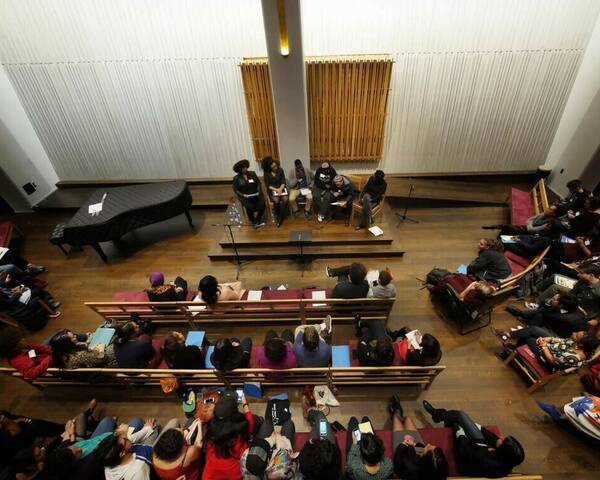Letters / On “What Comes Next for Jews of Color Activism?”
While we applaud Arielle Isack’s article for calling out the failures of American Jewish institutions to become truly anti-racist, the piece significantly understates both the role of Palestine solidarity in Jews of color organizing and the way that efforts to silence anti-Zionist ideas have impeded anti-racist work in Jewish spaces. The references to Palestine in the piece—including one to a non-Jewish group (the Movement for Black Lives) expressing solidarity with Palestine, and another to a group of Jews of color (the Black Jewish Liberation Collective) that has taken no position on Palestine—suggest that the landscape includes no Jews of color who are organizing in solidarity with Palestinians. In reality, this work has been going on for years.
We are members of one of the groups that has been doing this work, the anti-Zionist organization Jewish Voice for Peace (JVP), which was left out of the article. Jews of color have been in leadership at JVP since its early days in the late 1990s, but it took the formation of a member-led Jews of Color and Sephardi and Mizrahi Jews (JOCSM) caucus in 2015 to demand accountability from an organization that had worked to hone its anti-racism with respect to Palestinians, but had yet to reckon with its practices regarding JOCSM. In 2019, a staff-managed entity within JVP called the BIJOCSM Network took the place of the caucus. The Network added “Black and Indigenous” to the acronym JOCSM—which the caucus originally coined—in recognition of the fact that we are struggling under three parallel systems: global white supremacy, Ashkenormativity in Jewish institutions, and Jewish supremacy in Palestine/Israel.
BIJOCSM JVP members have been instrumental in planting the seeds of Jews of color work across the US, but our contributions have often been unrecognized and excluded due to our politics on Palestine. The erasure of our work has made it harder for us to join coalitions and access financial resources that could help us cultivate our BIJOCSM community. Such redlining, ongoing to this day, hinders our non-Zionist and anti-Zionist BIJOCSM siblings from finding safety, recognition, and inclusion in Jewish spaces. It also attempts to pit us against Palestinian communities by making the creation of BIJOCSM spaces seem contingent on keeping silent about Zionism. Writing about Jews of color organizing while omitting our longtime work effectively collaborates in our erasure from this landscape.
Over the past eight years, we have celebrated Mizrahi and Sephardi culture and resistance, and have given minoritized Jewish voices and Black and Palestinian comrades a platform to express their unique and undervalued perspectives. We organized a letter by Latinx Jews calling on the Trump administration to close the camps where immigrants are detained on the southern border, spoke up in defense of a Palestine-inclusive Ethnic Studies curriculum in California, led a celebrated “Black Lens on Palestine” webinar, and supported local, national, and global Sephardi/Mizrahi cultural work, among other initiatives. We have expressed solidarity with non-Jewish African refugees in Israel threatened with deportation—an ethnocratic policy that parallels the denial of the Palestinian right of return—and opposed the use of Blackface in Jewish communities. We have also defended the Movement for Black Lives against false accusations of antisemitism aimed at silencing their support of Palestine. Particularly relevant to Isack’s article, we have also organized for years against the Anti-Defamation League’s regressive stance on Palestine, calling out its attacks on anti-Zionists and Palestine solidarity activists—particularly activists of color—and drawing attention to its collaboration with racist policing initiatives in the US and Palestine/Israel. Although Isack touches on the ADL’s failures in the realm of anti-racism work, her article does not engage the urgently related issue of the organization’s Palestine politics.
The story of Jews of color organizing is incomplete without our voices, especially when told in a way that does not address the place of Palestine/Israel in the Jewish community’s grappling with anti-racism.
Shirly Bahar
New York, NY
Danny Bryck
New York, NY
Sydney Levy
Oakland, CA
The letter writers are BIJOCSM JVP members as well as present or former JVP staff members.
